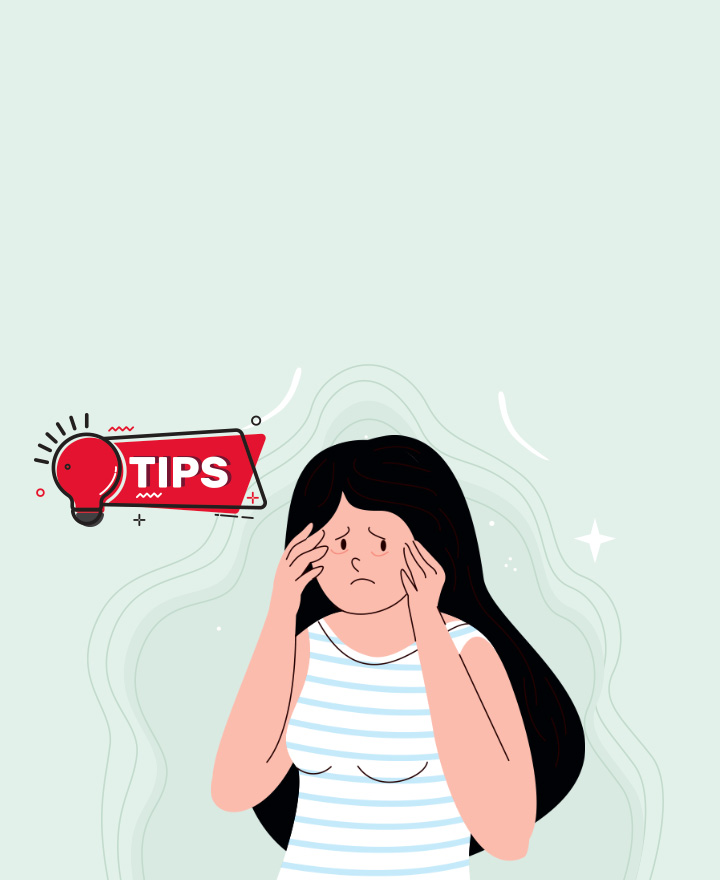

Types of Dandruff: Causes, Treatment, Prevention
Dandruff is a scalp condition that affects many individuals but varies from person to person. Each form has different characteristics, reasons, and treatments. While dandruff is non-contagious, it may make some feel embarrassed or uncomfortable. But before you grab the nearest anti-dandruff shampoo, read on to know what type of dandruff is causing your scalp to itch and flake.
Types of Dandruff
Not all dandruff is equal. Listed below are four main types of dandruff and their characteristics:
1. Dry Skin Dandruff
This is most common type and it appears during winter as your scalp isn’t getting enough moisture due to the cold air and indoor heating, which makes it dry and flaky. The flakes are small—white and powdery—but they don’t result in redness or inflammation. Frequent hot water washes and harsh shampoos add to the problem.
Solution: Moisturising shampoos and oil massages
2. Oily Skin Dandruff
It is a more serious type of dandruff found among those with oily scalps. Over-production of sebum oil results in dead skin cells and dirt, forming larger, yellowish, and oilier flakes. The scalp may also appear red and itchy. The reason can be stress or hormonal changes. It can also affect other oily spots, like the eyebrows, ears, and chest. The more severe form of oily skin dandruff is seborrhoeic dermatitis.
Solution: Antifungal shampoos and balancing oil production
3. Fungal Dandruff
Malassezia, a naturally existing fungus, can overgrow on the scalp by feeding on excessive sebum. It causes flaking with thicker scales and a red, inflamed, itching scalp. Although they may appear similar to seborrhoeic dermatitis, they differ with different treatments.
Solution: Antifungal shampoos and medicated treatment
4. Disease-Related Dandruff
Skin conditions, like psoriasis and eczema, can trigger flaking and itching on the scalp. Psoriasis presents with thicker, silvery scales, while eczema may show red, inflamed patches and oozing.
Solution: Consult a doctor for medicated treatment.
When To See a Doctor?
There are times when seeking medical attention is necessary, such as:
1. Persistent or severe dandruff that does not improve with self-care treatments or anti-dandruff shampoos
2. Presence of redness, swelling, or itching
3. Existing skin conditions like psoriasis or eczema
4. Flaking accompanied by hair loss
A doctor can rule out any underlying medical conditions and recommend the most appropriate treatment plan.
Conclusion
Healthy hair starts with a healthy scalp. Understanding the types of dandruff and their characteristics will help you choose the right treatment. But if your dandruff persists or worsens, don’t hesitate to seek professional advice.
One of the important components of our overall wellness is also being financially secured. Healthcare emergencies can happen any time, but a good health insurance policy can protect you from such uncertain situations. To know more about Wellness and other health related tips, visit the Wellness Corner.
Source: netmeds, healthline, kaya, headandshoulders
Disclaimer: This blog provides general information and discussions about health and related subjects. The information and other content provided in this blog, website or in any linked materials are not intended and should not be considered, or used as a substitute for, medical advice, diagnosis or treatment. Kindly contact your Doctor before starting a new medicine or health regime.
Related Articles
Decoding Scalp Conditions - Psoriasis vs. Dandruff
What is Psoriasis - Its Symptoms & Causes
Causes, Diagnosis, and Treatment of Psoriasis
Skin allergy: Types, causes, symptoms and treatments
Published on March 13, 2024














 Health Insurance
Health Insurance  Travel Insurance
Travel Insurance  Car Insurance
Car Insurance  Cyber Insurance
Cyber Insurance  Critical Illness Insurance
Critical Illness Insurance
 Pet Insurance
Pet Insurance
 Bike/Two Wheeler Insurance
Bike/Two Wheeler Insurance  Home Insurance
Home Insurance  Third Party Vehicle Ins.
Third Party Vehicle Ins.  Tractor Insurance
Tractor Insurance  Goods Carrying Vehicle Ins.
Goods Carrying Vehicle Ins.  Passenger Carrying Vehicle Ins.
Passenger Carrying Vehicle Ins.  Compulsory Personal Accident Insurance
Compulsory Personal Accident Insurance  Travel Insurance
Travel Insurance  Rural
Rural